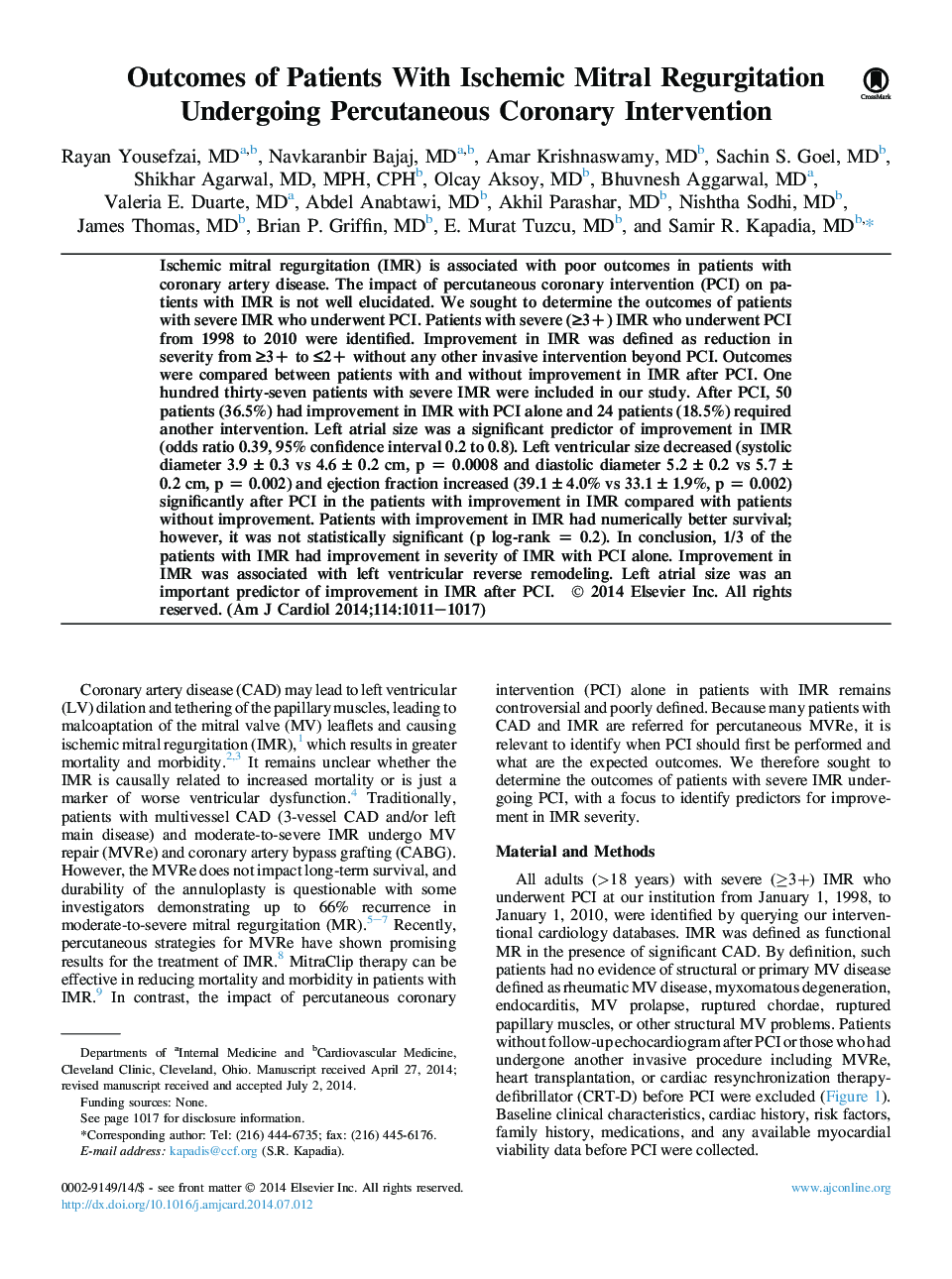| Article ID | Journal | Published Year | Pages | File Type |
|---|---|---|---|---|
| 2854574 | The American Journal of Cardiology | 2014 | 7 Pages |
•We examined ischemic mitral regurgitation (IMR) after percutaneous coronary intervention (PCI).•Mitral regurgitation (MR) improved in 1/3 of patients with only PCI.•IMR improvement was sustained in 75% of patients.•MR improvement was associated with reverse left ventricular remodeling.•Left atrial size is the most important predictor of IMR improvement.
Ischemic mitral regurgitation (IMR) is associated with poor outcomes in patients with coronary artery disease. The impact of percutaneous coronary intervention (PCI) on patients with IMR is not well elucidated. We sought to determine the outcomes of patients with severe IMR who underwent PCI. Patients with severe (≥3+) IMR who underwent PCI from 1998 to 2010 were identified. Improvement in IMR was defined as reduction in severity from ≥3+ to ≤2+ without any other invasive intervention beyond PCI. Outcomes were compared between patients with and without improvement in IMR after PCI. One hundred thirty-seven patients with severe IMR were included in our study. After PCI, 50 patients (36.5%) had improvement in IMR with PCI alone and 24 patients (18.5%) required another intervention. Left atrial size was a significant predictor of improvement in IMR (odds ratio 0.39, 95% confidence interval 0.2 to 0.8). Left ventricular size decreased (systolic diameter 3.9 ± 0.3 vs 4.6 ± 0.2 cm, p = 0.0008 and diastolic diameter 5.2 ± 0.2 vs 5.7 ± 0.2 cm, p = 0.002) and ejection fraction increased (39.1 ± 4.0% vs 33.1 ± 1.9%, p = 0.002) significantly after PCI in the patients with improvement in IMR compared with patients without improvement. Patients with improvement in IMR had numerically better survival; however, it was not statistically significant (p log-rank = 0.2). In conclusion, 1/3 of the patients with IMR had improvement in severity of IMR with PCI alone. Improvement in IMR was associated with left ventricular reverse remodeling. Left atrial size was an important predictor of improvement in IMR after PCI.
